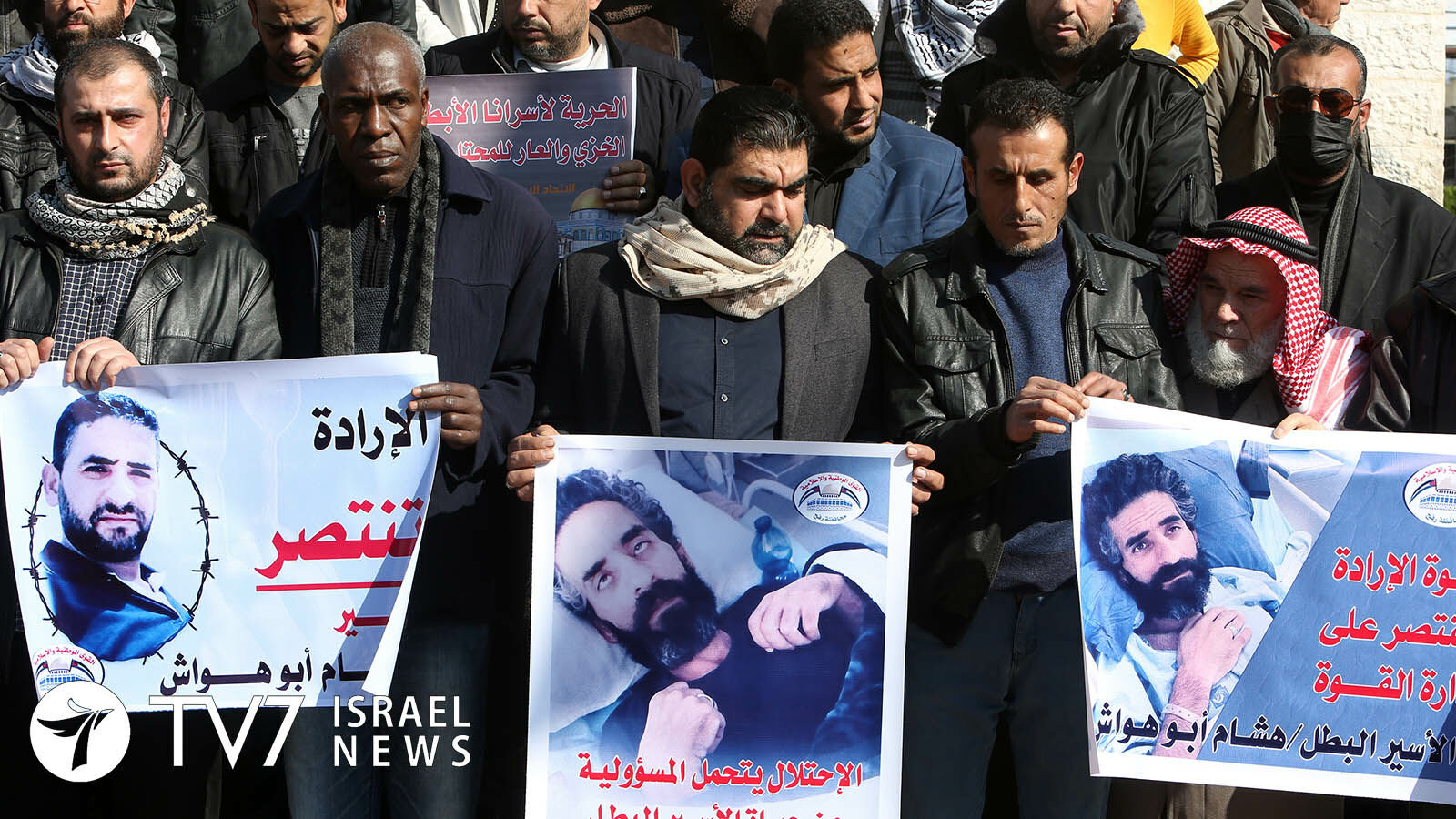Hisham Abu Hawash had refused food for 141 days in protest of his detention in Israeli prison.
By Erin Viner
According to his family and his attorney Jawad Boulos, Abu Hawash suspended his hunger after reaching an agreement with Israeli authorities for his release on 26 February.
Some Palestinian officials said that Egypt helped to mediate the deal, while others credited the Palestinian Authority for negotiating the release.
An Israeli security official speaking on condition of anonymity told Reuters that Hawash, who was arrested in October 2020 “for involvement in terrorist activity” is an operative of the Palestinian Islamic Jihad (PIJ) terror group.
The 40-year-old prisoner was hospitalized amid his refusal to eat last month. The PIJ threatened to launch attacks against Israel if he died, raising concerns of renewed violence after the 11-day Operation Guardian of the Walls conflict last May between Israel and Palestinian terror groups in Gaza.
Palestinians greeted the latest developments with proclamations of triumph over Israel.
PIJ described the deal as “capitulation” by the Jewish State in response to its threats, while Palestinian Prime Minister Mohammad Shtayyeh posted a Twitter message congratulating “the free (man), Abu Hawash”for “gaining his freedom by force of his will.”
The Islamist Hamas rulers of Gaza called the agreement a “legendary victory in the face of the terrorism and arrogance of the occupation” that “shows the strength and capabilities of our people and their prisoners in winning all their battles” against Israel.
Dozens gathered outside Abu Hawash’s home near the West Bank city of Hebron to celebrate, with many hailing him as a “hero” while distributing candy.
“This is a big victory and a gift to the Palestinian resistance in the Gaza Strip and all the Palestinian prisoners (held in Israeli prisons),” his wife Aisha told journalists, while expressing gratitude to “all the Palestinians who supported my husband during the hunger strike.“
Spokespeople for Israeli Prime Minister Naftali Bennett, the Israeli Security Agency (ISA, also known as the Shin Bet), IDF and the Prisons Authority did not immediately comment.
